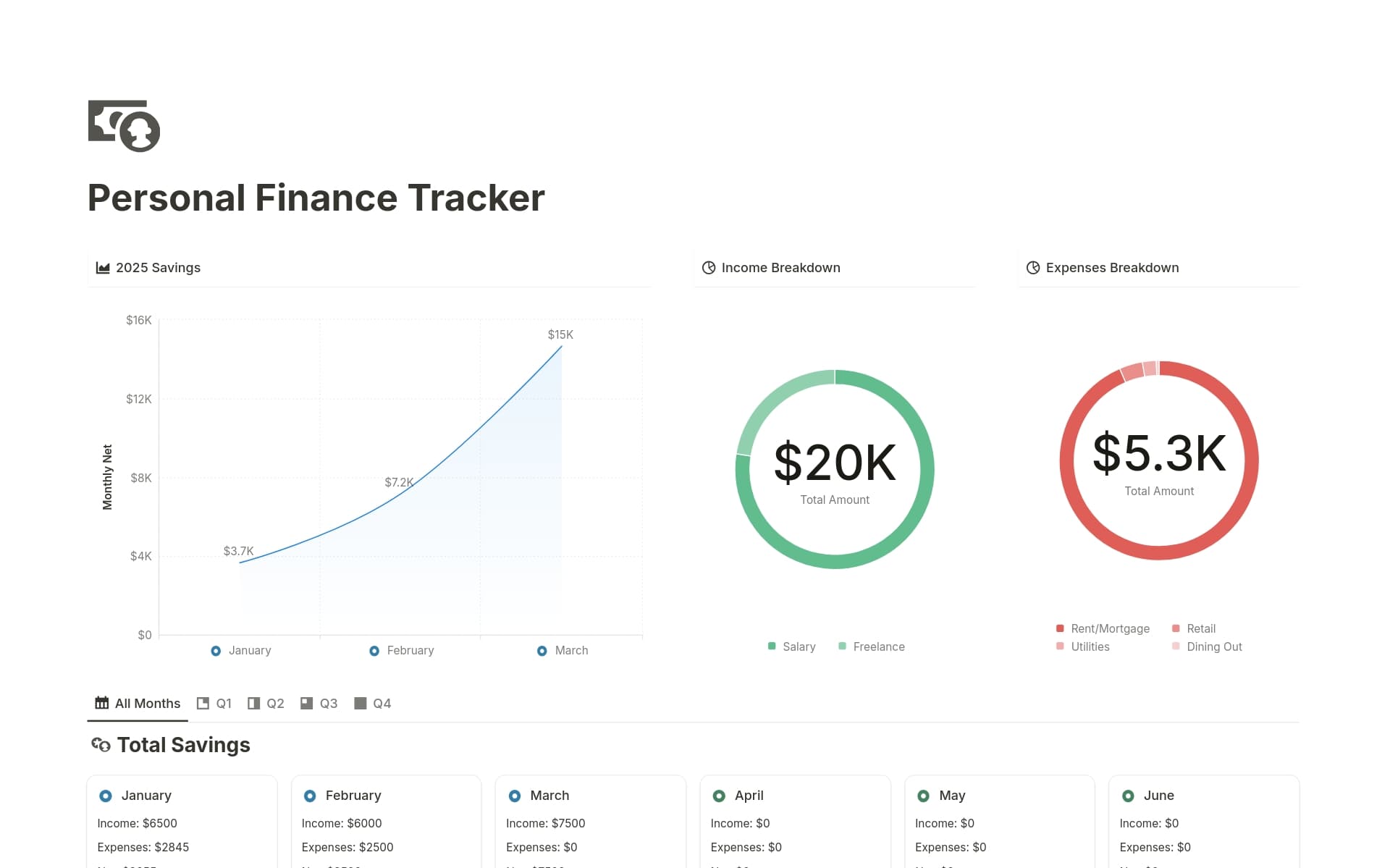Balanced eating is crucial for maintaining good health, managing weight, and providing the energy needed to lead an active lifestyle. It involves consuming a variety of foods in the right proportions to achieve and maintain optimal health and well-being. A Balanced Eating Notion template can streamline the process of meal planning, grocery shopping, and tracking nutritional intake, making it easier to adhere to a balanced diet.
Before you start creating your own Balanced Eating plan, check out these Balanced Eating Notion templates below to help make it easier. They offer structured layouts and features to support your journey towards a healthier eating routine.
What Should Balanced Eating Templates Include?
Choosing the right Balanced Eating Notion template can transform your dietary habits and help you maintain a healthy lifestyle. Here are key components to look for:
Comprehensive Meal Planning: The template should offer a detailed weekly meal planner that allows you to input meals and snacks, ensuring a balanced intake of nutrients.
Nutritional Information Tracking: It should include a feature to track macronutrients and calories, which is essential for monitoring your dietary goals.
Shopping List Integration: A good template seamlessly integrates meal plans with a shopping list, making grocery shopping more efficient and ensuring you buy only what you need.
Progress Monitoring: Look for templates that provide tools to track your progress over time, such as weight changes or energy levels, to see how your diet impacts your health.
With these features, a Balanced Eating Notion template can serve as a cornerstone for anyone looking to improve their eating habits and overall health.
What Should Balanced Eating Templates Avoid?
When selecting a Balanced Eating Notion template, it's essential to be aware of certain features that might hinder rather than help your nutritional goals. Here are three key components to steer clear of:
Overly Rigid Meal Plans: Templates that do not allow for personalization can lead to a monotonous diet that might be hard to stick to in the long term.
Non-Scientific Advice: Avoid templates that include nutritional guidance not backed by scientific research, as these can lead to unhealthy choices.
Lack of Portion Information: Templates that ignore portion sizes may not help in achieving a balanced diet, which is vital for effective eating plans.
Choosing the right template involves looking for flexibility, scientifically supported advice, and practical portion control to ensure it meets your dietary needs effectively.













